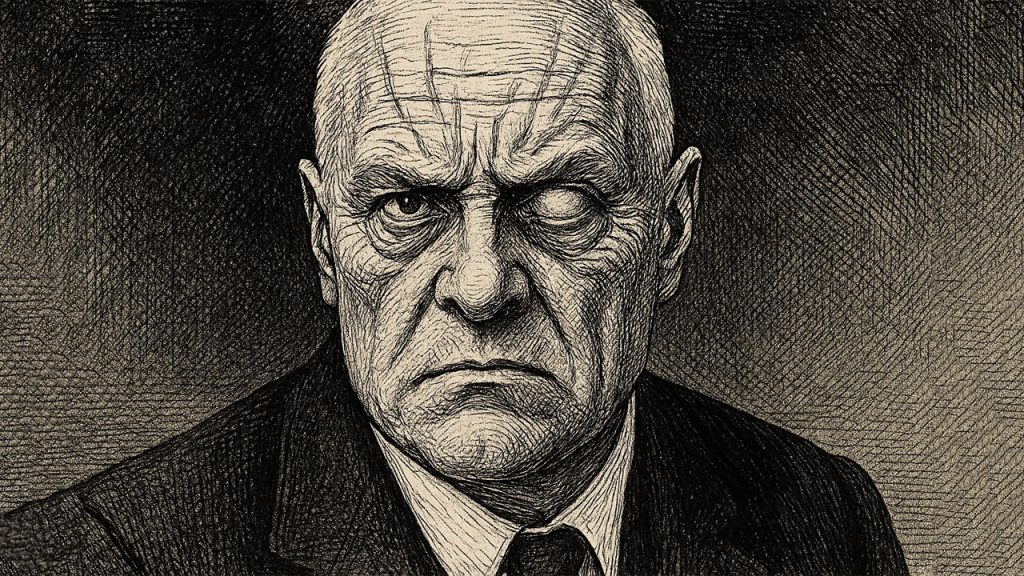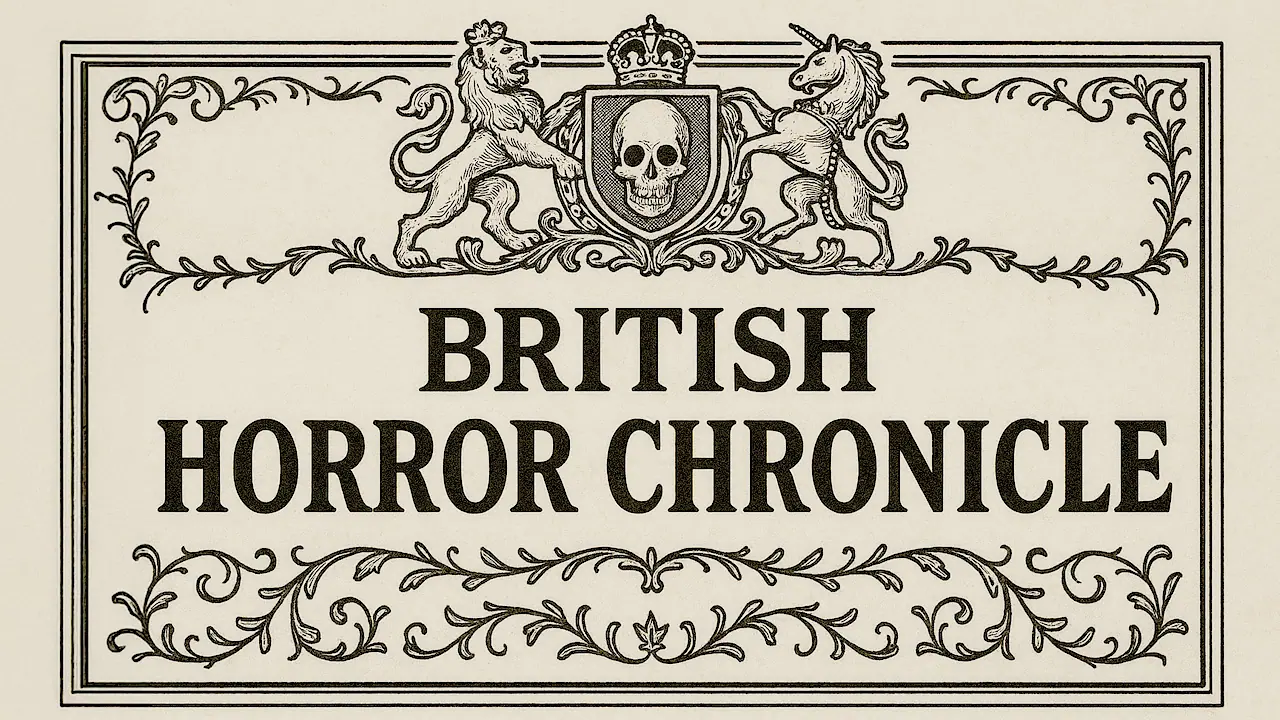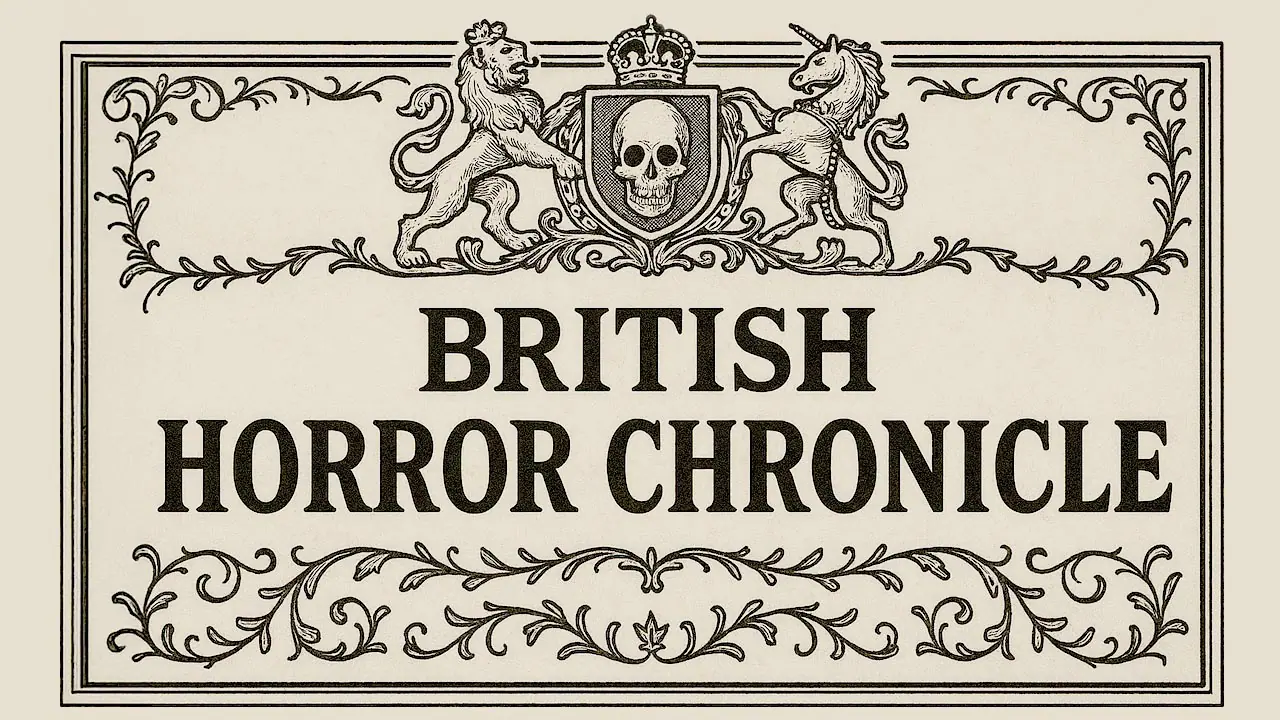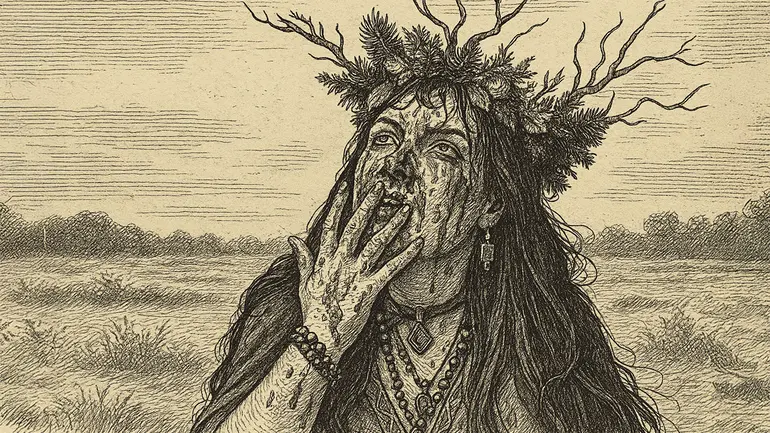A Profile in Persistence: The Singular Vision of Mr Tony Mardon
By Lawrie Brewster
In this, the second instalment of our new series profiling notable figures of the British horror film community, we turn our attention to a man of extraordinary fervour and invention… Mr Tony Mardon.
In the noble tradition of British independent cinema, Mr Mardon has distinguished himself not only as a filmmaker of considerable originality, but as a man of many disciplines, applying himself with unflinching dedication to the realms of writing, acting, producing, and directing. His is a voice forged in the fires of adversity, and his current enterprise, The Witches of the Sands, is already stirring considerable interest amongst devotees of the macabre and surreal.
The British horror scene, now as ever, finds its true spirit in the independence and ingenuity of its makers. Too long has this nation’s cinematic output been beholden to the transatlantic fashions of popular culture. The true lifeblood of our horror tradition has always come from the margins: from those tenacious individuals who strive, without fanfare, to preserve our distinctive aesthetic and narrative traditions.
The contemporary media establishment, ever in pursuit of that which is loudest or most lucrative, seldom spares a glance for the genuine independent spirit. While one cannot deny that such platforms have occasionally offered exposure to the deserving, they remain ill suited to the quiet brilliance and unvarnished authenticity of artists such as Mr Mardon.
It is therefore our aim, as both filmmakers and commentators, to cast a deserving light upon these industrious figures who continue to shape the course of British horror with little outside support. These are individuals whose works are born not of marketing strategies, but of personal conviction, lived experience, and an irrepressible creative drive.
Mr Mardon is, by all accounts, one such figure. His performances in the popular Video Shop Tales of Terror series, and its follow up Lust and Revenge, have already cemented his reputation for theatrical flair and fearless humour. His directorial segment in Invasion of Studio 69 displays a delightfully grotesque fusion of Ed Wood’s eccentricity and Russ Meyer’s more salacious sensibilities. Beyond these performances, Mr Mardon has directed a litany of shorts, performed in countless productions, and continues to develop works with his creative partner, the talented Miss Lauren Jane Barnett, a writer of note in her own right, whose recent non fiction volume Deadlines has won praise from such respected figures as Mr Stewart Lee and Mr Kim Newman.
In the spirit of this profile series, we sought an audience with Mr Mardon to discuss the many trials and triumphs of his present undertaking. What follows is a candid exchange that reveals not merely the film, but the soul of the man behind it.
An Interview with Mr Tony Mardon

Lawrie Brewster: Mr Mardon, could you tell us a little about the origins of The Witches of the Sands? How did the idea first arise, and how has the project evolved since its inception?
Tony Mardon: The Witches of the Sands began as something rather modest—originally envisioned as a short film. But like a mad scientist feeding a mutant Venus flytrap, I allowed it to grow unchecked. The support of many talented individuals helped it blossom into a far more complex and interesting endeavour. It has since become a deeply personal project, with strong autobiographical threads throughout. At times, the process has been both thrilling and discomfiting. What I hope to achieve is something that resonates with me, something that feels true.
Lawrie Brewster: You are writing, directing, and acting in this film. That is no small feat. How do you manage such creative demands simultaneously?
Tony Mardon: Those roles are challenging, to be sure, but the title of ‘producer’ has proven the most difficult. Fortunately, I have had invaluable help from my fiancée, Lauren, whose love of spreadsheets has been a saving grace. My background is in fine art, and I have always been driven by a love for the creative process. Writing and acting come naturally to me. Directing can be daunting, but a strong crew helps immensely. I would not necessarily recommend such multitasking to others, but for me, it was a necessity.
Lawrie Brewster: The road to completion has clearly not been easy. What personal and professional challenges have you faced in bringing this film to life?
Tony Mardon: The production has taken a real toll. My marriage broke down. I lost jobs. I sold personal belongings to cover expenses. At one point, I was even living in my car. We lost loved ones, including my father and actors who were part of the production. Despite this, I am fortunate. The team has become a source of great support, and meeting Lauren changed everything. I believe in surrounding oneself with people who care, and whom you care for. That has made all the difference.
Lawrie Brewster: The film’s visual aesthetic is incredibly distinctive, incorporating both live action and animation. Could you share your approach to achieving this look?
Tony Mardon: The animation arose out of necessity. A scene involving a flying car proved logistically unworkable, so we partnered with Sunrise Giants. From that single sequence, our collaboration expanded. I often describe the aesthetic as ‘Monty Python does horror with some of The Office thrown in’. My background in fine art perhaps explains the surreal quality. I view the film more as a living painting than a conventional production.
Lawrie Brewster: Does The Witches of the Sands contain broader themes? Might viewers discern commentary on society, belief, or personal trauma?
Tony Mardon: It has become more autobiographical over time. The protagonist’s journey, absurd though it may appear, mirrors aspects of my own. There are scenes that reflect real struggles, such as setting up a table at the studio to sell personal items. That really happened. We also tackle contemporary issues with humour and satire. Our commentary is sincere, though we expect not everyone will agree.
Lawrie Brewster: Are there particular filmmakers or artists who have influenced your work?
Tony Mardon: I have always admired those who persevere despite adversity. Derek Jarman was a great influence, and I once met him in Dungeness. There is a moment in our film inspired by his work Blue. I am also influenced by the fearsome public service announcements of the 1970s. These experiences shaped my horror sensibility more than most films. I gravitate toward creators like Van Gogh, who endured for their art.
Lawrie Brewster: What are your thoughts on the current state of British independent horror and its future?
Tony Mardon: It is difficult to say. Self-distribution works for some, but promotion remains a challenge. Traditional retail outlets are fading, and streaming platforms can bury content. I am watching closely what your team at the British Horror Studio is doing. Perhaps a domestic equivalent to Darkside Releasing is what we need.
Lawrie Brewster: Finally, what lies ahead for you?
Tony Mardon: First, I am determined to finish Witches. We recently filmed Darner, a short for our anthology project. I also acted in a segment of Sam Mason Bell’s new film. Lauren and I are working on a book, and we will return for Video Shop Tales of Terror 3. And, most joyfully, we are preparing for our wedding in August. That, above all, is what I most look forward to.
About Mr Tony Mardon
Mr Tony Mardon is a British independent filmmaker, actor, and writer, known for his bold storytelling, surreal sensibility, and deep commitment to horror cinema. His latest film, The Witches of the Sands, is a unique folk-horror work combining live action and animation. He continues to cultivate a devoted following among connoisseurs of the independent scene.
Instagram: https://www.instagram.com/the_witches_of_the_sands/
Facebook: https://www.facebook.com/thewitchesofthesands/
YouTube: https://www.youtube.com/@TheWitchesoftheSands
About Mr. Lawrie Brewster
Mr. Lawrie Brewster is a Scottish horror film producer with over fifteen years of experience. He presides over Hex Studios, stands as President of Amicus Productions, and leads the British Horror Studio — an initiative dedicated to creating a new golden age of British horror.
Discover more at his official website: www.lawriebrewster.com
Mr. Brewster’s recent writings include:
- Where to View The Slave and the Sorcerer, A Fantasy of Sorcery, and Sinister Delights
- Independent Horror Must Adapt or Perish
- Mr. Lawrie Brewster Unveils Queen Ginnarra, A Gothic Allegory of Heretical Faith and Madness
- How Mr. Lawrie Brewster Defied the Odds and Built a Gothic Empire
- Staff Directory of the British Horror Chronicle
For those of modern taste and forward inclination, a contemporary rendering of this article may be found at Amicus Horror, replete with present-day British musings.


